|
September 2017 Updates (continued)
A Great Rebuke...

09.08.17 (Elul 17, 5777) This week's Torah portion (parashat Ki Tavo) includes the second great "rebuke" (i.e., tochachah: תּוֹכָחָה) addressed to the community of Israel given in the Torah (the first rebuke was given earlier in parashat Bechukotai). In this sober and ominous section, the Lord promises the people great blessing if they would obey Him (Deut. 28:1-14), but forewarns that exile, persecution and other progressively worse punishments would befall them if they would break faith with Him (Deut. 28:15-68). The sages note that divine censure would come if the people "forgot their first love" for God and relaxed the observance of His laws due to indulgence: "Because you did not serve the Lord your God with joyfulness and gladness of heart, because of the abundance of all things, therefore [all these curses will come upon you]..." (Deut. 28:47-48). Gratitude is prerequisite for serving the LORD, and gladness of heart is found in the grace He supplies us to do His will. Indeed, the Greek word for "joy" used in the New Testament (χαρα) is related to the word for "grace" (χαρις), so there is a profound connection between apprehending grace and experiencing joy (Phil. 4:4). When we say, "Blessed are You, LORD our God," we affirm the blessedness and joy that is part of God's essence and heart.
Sometimes, of course, it is difficult to express joy, especially when we feel oppressed, saddened, or wounded. The Scriptures never disavow our emotional states (read Psalm 13 or Psalm 88, for example), but an underlying note of grace is always sounded, even in painful moments and times. This is our consolation in suffering.... "sorrowful yet ever rejoicing" (2 Cor. 6:10). And this works the other way, too. Even in our most joyous occasions, such as the great simcha (happiness) of a wedding, the "glass is shattered" to remind ourselves that our eternal joy is not yet fulfilled... We live in an "already-not-yet" state of existence. Our best moments are beset with shadows; our darkest are limned with hope of the new eternal day to come. As Paul said, "I consider that the sufferings of this present time are not worth comparing with the glory that is to be revealed to us" (Rom. 8:18). Nevertheless we are instructed to "serve the LORD with gladness" (Psalm 100:2), which moved the sages to say, "It is a great mitzvah to be happy always." We can experience joy even in the midst of our struggles because the love of God overcomes the darkness within us....
Regarding the first tochachah given earlier in the Book of Leviticus (i.e., Lev. 26:14-46), the sages point out that the phrase "if you walk contrary to me" (וַהֲלַכְתֶּם עִמִּי בְּקֶרִי) - which occurs several times during the great rebuke - really means "if you walk carelessly (i.e., keri: קְרִי) with me." Rashi notes that the verb karah (קָרָה) means "to befall" or "to happen" and therefore suggests a sense of randomness (the related word mikreh [מִקְרֶה] means "coincidence"). Once the people would begin to regard the events of life as "random," then God would reciprocate by bringing senseless trouble into their lives... For this reason an indifferent or careless attitude about God's will is often the very first step to eventual apostasy. In other words, regarding whatever happens in life as mere "coincidence" effectively denies God's Presence, and this attitude will eventually call for God's corrective intervention. People can be "hot or cold" regarding their relationship with Him, but God will never give the option of affecting indifference toward Him... Indeed, God often brings hardship into our lives to regain our attention and cause us to return to Him. As C.S. Lewis once said, "God whispers to us in our pleasures, speaks to us in our conscience, but shouts in our pains: It is His megaphone to rouse a deaf world."
Blaise Pascal once wrote: "I can feel nothing but compassion for those who sincerely lament their doubt, who regard it as the ultimate misfortune, and who, sparing no effort to escape from it, make their search their principal and most serious business. But as for those who spend their lives without a thought for this final end, I view differently. This negligence in the matter where they themselves, their eternity, their all are at stake, fills me more with irritation than pity: yea, it astounds and appalls me..." (Pensees, 427).
For more on this topic see the article, "Curses of the Law: Further thoughts on Ki Tavo."
The Hell of Apathy...

[ The following entry concerns this week's Torah reading, parashat Ki Tavo.... ]
09.07.17 (Elul 16, 5777) "Cursed is anyone who does not uphold the words of this Torah to do them" (Deut. 27:26). This is because God is God, ultimate reality is non-negotiable, and we are entirely and eternally accountable for all that we do (Matt. 12:36; Heb. 4:13). "Each person's deeds will become manifest, for the Day will disclose it, because it will be revealed by fire, and the fire will test what sort of deeds each one has done" (1 Cor. 3:13). There is a Scroll that attests the reality of all truth, and the life of every soul created by God is recorded therein (Rev. 20:12). We are forbidden to add or subtract from Torah, since that is to refashion God's message into one of our own understanding. Reading the tochachah (i.e., rebuke) in our Torah portion is difficult and painful, though it serves as a bitter medicine to wake us up from our lethal coma. In that sense the tochechah is a great blessing, since it shocks us into experiencing the "gravity of God's grace." This is why Yeshua proclaimed grave warnings about the dangers of forfeiting life and thereby "receiving" hell... Sin is a lethal problem, and we must turn to God for healing or we will die. The Lord does not allow us to trifle with the truth, neither will he offer us a good that excludes Divine Reality since there simply is no such thing. God does not give us the option of affecting existential indifference toward Him, since apathy is as much a spiritual decision as is outright rebellion and apostasy. "If anyone thinks he has faith yet is indifferent toward this possession, is neither hot nor cold, he can be certain that he does not have faith. If anyone thinks he is a Christian and yet is indifferent toward being that, then he is not really one at all. Indeed what would we think of a person who gave assurances that he was in love and also that it was a matter of indifference to him?" (Kierkegaard: Works of Love). "Guard me, O God, for in you I take refuge. I say to the Lord, "You are my Lord; I have no good apart from you" (Psalm 16:1-2).
My Light, My Yeshua...
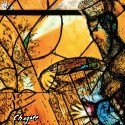
[ The following is related to the month of Elul and the theme of teshuvah (repentance)... ]
09.07.17 (Elul 16, 5777) Psalm 27 (תְּהִלִּים כז) is the third psalm in which only David's name is mentioned, indicating that it is his personal prayer, asking God to strengthen his resolve in the face of battle. It begins, "The LORD is my Light and my Salvation, whom shall I fear? The LORD is the Strength of my life, of whom should I be afraid?" (Psalm 27:1). Here are a few brief notes about this opening verse. 1) "The LORD is my Light" (יְהוָה אוֹרִי), the Divine Light that overcomes the darkness and provides guidance and illumination (Gen 1:3; John 1:5,9). God's mysterious light is apprehended within, revealing where we are, delivering us from being lost, and enabling us to understand the way to go. David calls this light his own, since he trusts the LORD to provide the revelation he needs for this hour. 2) "The LORD is my Salvation" (יְהוָה יִשְׁעִי), that is, my yeshuah (יְשׁוּעָה), which refers to divine intervention and deliverance. Our Messiah is both the Light of the Eternal (אוֹר הָעוֹלָם) who opens our eyes to experience the "light of the Living One" (אוֹר הַחַיִּים), and also the great Deliverer of Israel (מושיע ישראל) (Matt. 1:21; John 8:12). In the consciousness of God's salvation, then, David rhetorically asks, "Whom shall I fear?"(מִמִּי אִירָא), implying there is no greater power than the LORD, since there is salvation in no other, and nothing therefore can befall David apart from the Divine Supervision (Rom. 8:28). As the Song of Moses says, "The LORD is my strength and my song, and he has become my salvation (עָזִּי וְזִמְרָת יָהּ וַיְהִי־לִי לִישׁוּעָה); this is my God, and I will praise him, my father's God, and I will exalt him" (Exod. 15:2). Likewise Isaiah exclaimed, "Behold, God is my salvation (הִנֵּה אֵל יְשׁוּעָתִי); I will trust, and will not be afraid; for the LORD GOD is my strength and my song, and he has become my salvation" (Isa. 12:2). Therefore David affirms that "the LORD is the Strength of my life" (יְהוָה מָעוֹז־חַיַּי), that is, the One who makes a refuge for me on all sides. Since God's Spirit is within him, there is no dread of phenomenal appearances or temporal outer circumstances. Here David refers to spiritual danger and takes comfort in the awareness that all the trials he might face were designed by God to help him reach higher goals. The LORD is the Source of our enlightenment and happiness... He lifts us up from the "gates of death" (מִשַּׁעֲרֵי מָוֶת) so that we may recount all His praises and to rejoice in Yeshua, the Light of Life and our Salvation (Psalm 9:14).
יְהוָה אוֹרִי וְיִשְׁעִי מִמִּי אִירָא
יְהוָה מָעוֹז־חַיַּי מִמִּי אֶפְחָד
Adonai · o·ri · ve·yish·i · mi·mi · i·ra?
Adonai · ma·oz · chai·yai · mi·mi · ef·chad?

"The LORD is my light and my salvation, whom shall I fear?
The LORD is the Strength of my life, of whom shall I be afraid?"
(Psalm 27:1)

Download Study Card
Note: The Hebrew word for "fear" (i.e., yirah: יִרְאָה) and "be afraid (i.e., pachad: פַּחַד) are parallel in this passage, a usage also found in Deut. 2:25: "Today I will begin to put the dread and fear of you (פַּחְדְּךָ וְיִרְאָתְךָ) on the peoples who are under the whole heaven."
The Teshuvah of Seeing...
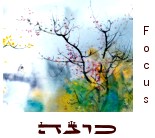
09.07.17 (Elul 16, 5777) Love covers a multitude of sins (Prov. 10:12; 1 Pet. 4:8)... Love sees beyond the present moment to behold the redeemable, the made whole, the beloved. Such love "believes all things" and yet is never deceived. "Just as one by faith believes the unseen into what is seen, so the one who loves by forgiveness believes away what is seen. Both are faith. Blessed is the believer, he believes what he cannot see; blessed is the one who loves, he believes away that which he indeed can see" (Kierkegaard: Works of Love).
For more on this subject, see the Elul and High Holiday pages...
An Ever-Present Mercy...
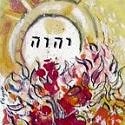
09.06.17 (Elul 15, 5777) Since Rosh Hashanah is known as the "Day of Judgment" (i.e., yom ha'din: יום הדין), it is customary to offer additional prayers of supplication (selichot) before the advent of the holiday. These prayers appeal to God's compassion and often include the recitation of "shelosh esrei middot rachamim," that is, the thirteen attributes of God's mercy (Exod. 34:6-7). The thirteen attributes reveal the inner meaning of God's Name YHVH (יהוה) that was disclosed to Moses after the people had committed the dreadful sin of the worshiping the golden calf at Sinai. God is not only our Judge and Lawgiver (Elohim), but our Savior and our Healer (Moshia). In his great mercy He restores what we have broken; He overcomes our jugdment by means of his abounding love given to us in Yeshua (Psalm 85:10). We therefore appeal to YHVH as the Source of Compassion, the "breath of life" (נִשְׁמַת חַיִּים) that was imparted to Adam on the day he was first created (Gen. 2:7).
יְהוָה יְהוָה אֵל רַחוּם וְחַנּוּן
אֶרֶךְ אַפַּיִם וְרַב־חֶסֶד וֶאֱמֶת
נצֵר חֶסֶד לָאֲלָפִים
נשֵׂא עָוֹן וָפֶשַׁע וְחַטָּאָה וְנַקֵּה לא יְנַקֶּה
פּקֵד עֲוֹן אָבוֹת עַל־בָּנִים
וְעַל־בְּנֵי בָנִים עַל־שִׁלֵּשִׁים וְעַל־רִבֵּעִים
Adonai Adonai El ra·chum ve·chan·nun
e·rekh ap·pa·yim ve·rav che·sed ve·e·met
no·tzeir che·sed la·a·la·fim
no·sei a·von va·fesh·a ve·cha·ta·ah ve·nak·keh lo ye·nak·keh
po·keid a·von a·vot al ba·nim
ve·al be·nei va·nim al shil·le·shim ve·al rib·bei·im

"The LORD, the LORD, a God merciful and gracious,
slow to anger, and abounding in steadfast love and faithfulness,
keeping steadfast love for thousands,
forgiving iniquity and transgression and sin, but who will by no means clear the guilty, visiting the iniquity of the fathers on the children
and the children's children, to the third and the fourth generation"
(Exod. 34:6-7)

The Torah teaches that the Name of the LORD (יהוה) means both ehyeh (אֶהְיֶה) "Presence" and rachum v'chanun (רַחוּם וְחַנּוּן), "Mercy and Grace" (Exod. 3:14; 34:6-7). Yeshua said, "I go to prepare a place for you," which means that his presence and love are waiting for you in whatever lies ahead (Rom. 8:35-39). We live and move and have our being in God's love. To worry is "practicing the absence" of God instead of practicing His Presence... Trust the word of the Holy Spirit: "For I know the plans I have for you, declares the LORD, plans for healing peace and not for evil, to give you a future and a hope (Jer. 29:11).
Birthpangs of Messiah...

09.06.17 (Elul 15, 5777) Our world appears to be careening toward a crash... Most of us are troubled, if not frightened. Natural disasters; epic floods, tsunamis; hurricanes; a massive increase of seismic activity and earthquakes; widespread famine and plagues abound upon the earth, human wickedness that resembles the wholly depraved days of Noah. Indeed moral corruption and decay are all around us and nothing makes much sense any longer... We must stand firm in our faith and be ready, however. The period of time immediately before the Messiah's arrival is sometimes called ikvot meshicha (עִקְּבוֹת מְשִׁיחַ), the time when the "footsteps of the Messiah" can be heard. This is the time appointed by God for the final Messianic redemption and the close of the present age (olam ha-zeh). This accords with the teachings of Yeshua and His apostolic witnesses (Matt. 24:36-44; 1 Thess 5:1-3; 2 Pet. 3:10; Rev. 3:3). The condition of the world during acharit hayamim (the end of days) will be grossly evil (2 Pet. 3:3; 2 Thess. 2:3-4, 2 Tim. 3:1-5). The world will undergo various forms of tribulation, called chevlei Mashiach - the "birth pangs of the Messiah" (Sanhedrin 98a; Ketubot, Bereshit Rabbah 42:4, Matt. 24:8).
The "birth pangs" are said to last for 70 years, with the last 7 years as the most intense period of tribulation -- the "Time of Jacob's Trouble" / עֵת־צָרָה הִיא לְיַעֲקב (Jer. 30:7). The first wave of trouble came from Edom (i.e., "Rome/Europe") in the form of the Holocaust; the second is coming from Ishamel (i.e., the Arab states) in the form of the Arab-Israeli conflict. This also accords with the teachings of Yeshua in the Olivet Discourse (Matt. 24-25).
Some of the "signs" of this benighted period include the rise of various false prophets, numerous wars and "rumors of wars" (including the rise of Magog), famines, earthquakes, worldwide apostasy from the faith, persecution, and a globalized sort of godlessness that is revealed in unbridled selfishness, greed, chutzpah (audacity), shamelessness, and a general lack of hakarat ha-tov (gratitude). The greatest sign, however, will be that Israel will exist once again as a sovereign nation, despite the prophesied exile among the nations (Deut. 4:27-31; Jer. 30:1-3). According to some of the sages, the 9th century work Pirkei d'Rabbi Eliezer foretells that just before the coming of Messiah, "Ishmael" will rise in power to terrorize the world. According to Yalkut Shimoni, the king of Persia (Iran) is going to "have a weapon that is going to terrorize the world." A coming "Messiah of evil" (code name Armilus) will soon appear on the world stage to offer a peace treaty for Israel and the Middle East, "but when they shall say, "peace and safety" (confirmed covenant) then sudden destruction will come upon them, as labor pains come upon a pregnant woman (time of Jacob's Trouble), and they will not escape (1 Thess. 5:3). This is the significance of the extraordinary cataclysmic world events which we are witnessing this very day...
"For though the vision awaits its appointed time; it hastens to the end -- it will not lie. If it seems slow, wait for it; it will surely come; it will not delay" (Hab. 2:3) For more on this topic, see "Birthpangs of Messiah and the End of Olam Hazeh."
Worldly Afflictions...

[ The following entry concerns this week's Torah reading, parashat Ki Tavo.... ]
09.06.17 (Elul 15, 5777) Our Torah portion this week says: "And the Egyptians mistreated and afflicted us..." (Deut. 26:6). The sages note that the word translated "they afflicted" (וַיָּרֵעוּ) could be translated either as "they made us bad (רַע)" or "they befriended us" (רֵעַ), though the two meanings may be related, since befriending the ideals and values of the world corrupts us so that we lose our identity and our spiritual sensitivity. As it is written, "whoever wishes to be a friend of the world makes himself an enemy of God" (James 4:4). Therefore we are admonished not to love this world and its rubbish: "If anyone loves the world, the love of the Father is not in him" (1 John 2:15).
A Cursed Indifference...

09.06.17 (Elul 15, 5777) From our Torah reading this week (Ki Tavo) it is written: "Cursed is anyone who does not uphold the words of this Torah to do them" (Deut. 27:26). The sages here note that the word "uphold" (יָקִים) means accepting the truth and validity of Torah perspective (i.e., hashkafah), not necessarily perfectly fulfilling all of the commandments. It is the one who denies the legitimacy of God's word, or claims that the commandments are no longer relevant, that is under the curse. The righteous may struggle and sometimes stumble, but they are never at peace with their sin and always seek to repent. Those who are careless – who willfully disregard God's truth – sin in defiance, and this leads to a life of eternal loss. We do not add or subtract from Torah, since that is to refashion God's word into our own image. And even if we should stumble and fail 100 times a day, we affirm the validity of God's truth and cherish it within our hearts. We must never justify compromise, mediocrity, and apathy into a spiritual ideology (Rev. 3:16).
God does not want our relationship with him to be trivial. Our hearts must be tested in "desert places" until they cry out, "You are my Lord; I have no good apart from you" (Psalm 16:2; Deut. 8:16). As Abraham Heschel said, "God is of no importance unless he is of supreme importance." There is simply no compromise on this point: We are to love the Lord with all our heart, with all our soul, and with all our strength...
קָדוֹשׁ קָדוֹשׁ קָדוֹשׁ יהוה צְבָאוֹת
מְלא כָל־הָאָרֶץ כְּבוֹדוֹ
ka·dosh ka·dosh ka·dosh, Adonai Tze·va·ot,
me·lo khol ha·a·retz ke·vo·do

"The steps of a good man are ordered by the LORD, and he favors his way.
Though he fall, he shall not be utterly cast down, for the LORD upholds his hand."
(Psalm 37:23-24)

Note: The post-modern, post-Christian west is reaping the whirlwind because of its apathy and indifference to moral truth. The rise of radicalism and jihad is a scourge meant to awaken people to the reality of moral consequences. For more see "Reaping the Whirlwind."
Focus of the Heart...
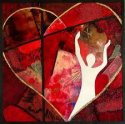
[ The following is related to the month of Elul and the theme of teshuvah (repentance)... ]
09.06.17 (Elul 15, 5777) Regarding the subject of teshuvah (returning to God) Yeshua taught: "Blessed are the pure in heart, for they shall see God'" (Matt. 5:8). The Greek word translated "pure" is katharos (καθαρός), a word sometimes used describe the cleansing of a wound (catharsis), or to describe the unalloyed quality of a substance through refining fire (the corresponding Hebrew word for the "pure of heart" (בַּר־לֵבָב), used in Psalm 24:4, comes from a root (בָּרַר) that likewise means to purify by fire). Metaphorically, then, purity of heart refers to separation from the profane, that is, singleness of vision, wholeheartedness, passion, wonder, and focused desire for the sacred. As the Beatitudes reveal (Matt. 5:3-8), only those who are impoverished in spirit, who mourn over themselves and hunger for God's mercy, are refined by their struggle to see God (the Greek text implies these will see God now – with inward vision – as well as in the world to come). Because the pure in heart use ayin tovah, the good eye, they walk "in the light, as God is in the light" (Matt. 6:22). When we are undivided in heart, the Spirit imparts to us hidden wisdom (1 Cor. 2:6-7) and we are able to discern hidden realities that others do not see (1 Cor. 2:14). As we center our affections on Yeshua, we become unified, made whole, and healed of our inner fragmentation. We see the Lord both in this world, through his effects, and then panim el panim (פָּנִים אֶל־פָּנִים), "face to face," in the world to come. Our hope purifies us for that coming great day of full disclosure (1 John 3:2-3; Heb. 12:14).
If we are impure of heart, we will be inwardly divided, unfocused, fragmented, filled with destabilizing anxiety, envy, anger, and so on. More tragically, because we seek to escape ourselves, we will be devoid of a true center, without a focal point or abiding purpose, and therefore we will be lost to ourselves, wandering and without rest (God forbid).
It is the Spirit that gives life (John 6:63). The Holy Spirit imparts the "pulse" of the Divine Life, and we gain newness of life when we trust God for purification from our sins through Yeshua our LORD. As King David further attested: Lev tahor bara li Elohim – "Create in me a clean heart, O God" and renew a right spirit within me (Psalm 51:10). Only the new heart (lev chadash) created by power of God's Spirit can possibly yield the life of the Spirit within us. The creation of a new heart represents the transformation of your whole inner nature - with the impartation of new appetites, new passions, new desires, and the rebirth of your will. If you struggle with being inwardly divided, ask God for the blessing of purity of heart...
Finding our Healing...

09.05.17 (Elul 14, 5777) Just as our words reveal what is within our hearts (Luke 6:45), so do our eyes (Luke 11:34; Matt. 15:19). How we look upon others is a function of how we see ourselves; and therefore we all share in the face of our fellows. The metzora (i.e., leprous person) shall wear torn clothes and let the hair of his head hang loose, and he shall cover his upper lip and cry out, 'Unclean, unclean.' The sages interpret, "Unclean, unclean!" (Lev. 13:45) to mean that the one who is unclean calls others "unclean," which is to say, he projects his own defects onto others. Healing comes when we understand that we all are affected by sin and sickness, and when we criticize others, we condemn ourselves (Rom. 2:1). After all, there is much in all of us that remains broken, unclean, and in need of God's touch. Love uses a "good eye" (ayin tovah) to believe in the good, even if that good is yet unseen (Heb. 11:1). "Love bears all things, believes all things, hopes all things, and endures all things" (1 Cor. 13:7), and that also refers to our deliverance and healing...
In this connection the sages note that the faults of others often reflect our own failures of character. As it says, "evil comes to those who seek for it" (Prov. 11:27). The seeker the LORD (וְדרְשֵׁי יְהוָה), on the other hand, "lacks no good thing," because they discover the good always enough to meet their needs.
Death Benefits of Messiah...

[ The following entry concerns this week's Torah reading, parashat Ki Tavo and the various curses of the law enumerated in the "tochachah." Please read the portion to find your place here. ]
09.05.17 (Elul 14, 5777) We are told that we must "receive" the life of Yeshua into our hearts, and that is certainly true, but we must also receive his death as well... This is the meaning of "taking up your cross." It is the death of Yeshua in your place that releases you from the curse of the law (מִקִּלְלַת הַתּוֹרָה), that is, spiritual death, as it says, "the Messiah redeemed us from the curse of the law by becoming a curse for us, for it is written, "Cursed is everyone who is hanged on a tree" (Gal. 3:13). By faith we perform "semichah" -- we "lay hands" on him and "lean into" his death, confessing our guilt and sin and receiving his sacrifice as offered up for our sake. Our sins are "transferred" to his account, and his righteousness is transferred to ours. This is the idea of our "justification," -- "just-if-i'd" never sinned, and "just-if-i'd" always obeyed... As it is written, "God made the One who did not know sin to be sin for us, so that we would become the righteousness of God (δικαιοσύνη θεοῦ) in Him" (2 Cor. 5:21). It is the righteousness of God, not our own. We receive the "death benefits" of Yeshua, who has bequeathed to us the great inheritance of everlasting life and heaven itself... Our identification with His death makes us "free from the law," not in the sense that we are free to sin, but rather free to live in a different order of relating to God, a new and a better covenant, whereby we are given power over sin and death. "I have been crucified with the Messiah: It is no longer I who live, but Messiah who lives in me. And the life I now live in the flesh I live by faith in the Son of God, who loved me and gave himself for me. I do not nullify the grace of God, for if righteousness came through the terms of the law, then Messiah died for no purpose" (Gal. 2:20-21). Trusting in Yeshua gives us "access by faith into grace" so that we are fully and forever accepted in God's Presence...
Note, however, that we are delivered from the curse of the law, but not from the law itself (Matt. 5:17-19). After all, the Torah, understood to refer to the will of the LORD our God, is written on our hearts by the power and agency of the Holy Spirit, the Spirit of Truth, in accordance with the promise of the New Covenant of God (Jer. 31:33). For more on this important topic, see the Ki Tavo article, "Death with Messiah."
Teshuvah and Desire...

09.04.17 (Elul 13, 5777) What are you seeking today? (John 1:38) The Spirit of the Living God calls out, "Seek Me and live" (Amos 5:4). If you are feeling empty today, ask God to feed you with His life-giving food. Ask Him for energy, power, and strength... Seek the LORD and His goodness. He is faithful and true and will surely answer the sincere cry of the heart: "You will seek me and find me, when you seek me with all your heart."
וּבִקַּשְׁתֶּם אתִי וּמְצָאתֶם
כִּי תִדְרְשֻׁנִי בְּכָל־לְבַבְכֶם
u'vik·kash·tem · o·ti · u·metz·a·tem
ki · tid·re·shu·ni · be·khol · le·vav·khem

"You will seek me and find me
if you search for me with all your heart"
(Jer. 29:13)

Hebrew Study Card
Note that this verse includes the implication that we will discover that the LORD is the answer to our heart's cry for love, significance, purpose, etc., when we search for Him bekhol levavkhem - with all our hearts (but not the other way around). In other words, if we do not search for God authentically - with the full passion of our hearts - then we will not find Him, since God only reveals Himself in the truth of reality. Some things in life are only known in the passion of faith... things like love, beauty, honor, and so on. As Pascal once said, "The heart has its reasons that reason knows not of..."
The problem with many of us is not that we have strong desires, but rather that our desires are not strong enough... We settle for junk food when God spreads out his banqueting table before us. There is a "deeper hunger" for life, and I pray we are all touched by such hunger pangs; there is a "blessed hunger and thirst" that feeds our heart's cry for God (Matt. 5:6); there is a "divine discontent" that leads to a deeper sense of contentment for the heart...
In the end, if we cannot say we have lived well, then nothing else matters... Seeking God is a process, a "how" of life, not a recipe or formula, no matter how venerated. Seeking God is the goal of life, and in the world to come, I am afraid that most of us will regret that we did not pursue the Eternal with all our hearts while we had the opportunity to do so...
Jesus in Context...
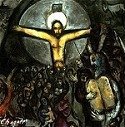
09.03.17 (Elul 12, 5777) An essential and basic principle of Bible interpretation is stated in the simple axiom: "a text without a context is a pretext," and therefore we must endeavor to understand the New Testament in light of the Torah, not the other way around... Without the context of Torah, the meaning and terms of the New Testament will be obscure and subject to misunderstanding. Indeed, we must remember that the Messiah was "embedded" in the Jewish culture of his day (Gal. 4:4-5), and was fluent in Torah reading and study (Luke 4:16-21; John 4:22). Moreover, Yeshua plainly said that the Jewish Scriptures testify of Him: "And beginning with Moses and all the Prophets, he interpreted to them in all the Scriptures the things concerning himself" (Luke 24:27; John 5:39). We study Torah to know Yeshua, the "Living Torah" better, as he said: "Therefore every scribe who has been trained for the kingdom of heaven is like a master of a house, who brings out of his treasure what is new and what is old" (Matt. 13:52).
When we begin to apply this principle of interpretation, the "red letter" text of the New Testament will become visible in the Torah, the Prophets, and the Writings as well... Yeshua is the Voice of God that speaks from the midst of the fire -- yesterday, today and forever!
A Select Treasure...

[ The following entry concerns this week's Torah reading, parashat Ki Tavo... ]
09.03.17 (Elul 12, 5777) From our Torah portion this week (i.e., Ki Tavo) we read: "You are a treasured possession ... a people holy to the LORD your God " (Deut. 26:18-19). Holiness, or kedushah (קְדוּשָׁה), represents transformation, being wholly set apart and turned toward the sacred, the Divine Presence. The LORD said to Moses from the midst of the shining flame: "Take off your sandals from your feet, for the place on which you stand is holy" (Exod. 3:5). The Chofetz Chaim comments: "By faith see that this place, right now, is holy ground, and awaits your response." Amen, and may we open our eyes to God's light:
קָדוֹשׁ קָדוֹשׁ קָדוֹשׁ יהוה צְבָאוֹת
מְלא כָל־הָאָרֶץ כְּבוֹדוֹ
ka·dosh ka·dosh ka·dosh, Adonai Tze·va·ot,
me·lo khol ha·a·retz ke·vo·do

"Holy, holy, holy is the LORD of hosts;
the whole earth is full of his glory!"
(Isa. 6:3)

Download Study Card
Spiritually speaking, the very first step is to find hope... The Divine Light is seen by means of the eye of faith (עַיִן שֶׁל אֱמוּנָה), as it is written, "Light dawns in the darkness for the upright; He is gracious, merciful, and righteous" (Psalm 112:4). Therefore we find life by trusting in God's Presence, even as we learn to see the invisible (2 Cor. 4:18; 5:7). "Trust in the LORD with all your heart, and do not lean on your own understanding. Know Him in all your ways, and He will straighten your paths. Be not wise in your own eyes; fear the LORD, and turn away from evil" (Prov. 3:5-7).
Parashat Ki Tavo - כי־תבוא

09.03.17 (Elul 12, 5777) Our Torah portion this week (parashat Ki Tavo) includes the commandment for the people to ratify the Sinai covenant in the promised land by means of a special ceremony performed in the valley between Mount Ebal and Mount Gerazim (later fulfilled by Israel, see Josh. 8:30-35). During this ceremony the blessings for obedience and the curses for disobedience would be declared, and Moses warned the people by providing a seemingly endless description of terrible consequences that would befall the Jewish people if they disobeyed the terms of the Sinai covenant (Deut. 28:15-68). In Jewish tradition this litany of woe is called the "tochachah" (תּוֹכָחָה), a word that means "rebuke" or "reprimand." Reading the tochachah is difficult and painful, though it serves as a bitter medicine to wake us up and prevent us from falling into a lethal coma. In that sense the tochechah may be regarded as a great blessing, since it shocks us into experiencing the gravity of God's grace. This is similar to Yeshua's grave warnings about the dangers of hell. If we refuse to listen or rush past his words, we are missing the substance of God's lament given through the Hebrew prophets. Sin is a lethal problem, and we must turn to God for healing or we will die. As Blaise Pascal once wrote, "Between heaven and hell is only this life, which is the most fragile thing in the world." Therefore shuvah! -- turn to God and receive the blessing of life!
Why then the Law?
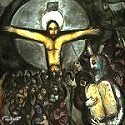
09.01.17 (Elul 10, 5777) Our Torah reading for this week, Ki Teitzei, is notable because it contains the most commandments of all the other weekly Torah readings: 74 according to the count of Maimonides (over 12% of the 613 commandments). These various commandments cover a wide assortment of rules related to ethical warfare, family life, burial of the deceased, property laws, fair labor practices, proper economic transactions, and so on. Even rules about a mother bird and her young are included (Deut. 22:6-7). Your Heavenly Father knows when the sparrow falls (Matt. 10:29).
In every aspect of human life - religious, moral, social, civil, environmental, agricultural, dietary, sexual, and so on - the Torah has its voice. For example, Rabbi Pinchas ben Hama said, "Wherever you go and whatever you do, pious deeds will accompany you. When you build a new house, 'make a parapet for your roof' (Deut. 22:8). When you make a door, 'write the commandments upon your doorposts' (Deut. 6:9). When you put on new garments, 'do not wear cloth that combines wool and linen' (i.e., shaatnez; Deut. 22:11). When you cut your hair, 'do not round the corners of your head' (Lev. 19:27). When you plow your field, 'do not plow with an ox and an ass together' (Deut. 22:10). When you reap your harvest, and have forgotten a sheaf, do not pick it up. Leave it for the stranger, the fatherless, and the widow (Deut. 24:19). And even if you are not engaged in any particular kind of work but are merely journeying on the road, the precepts accompany you. If a bird's nest is before you on the road, 'do not take the mother with her young' (Deut. 22:6-7)." We might add, whenever you eat or drink something we are to recall how God's Presence sustains us (1 Cor. 10:31).
The pervasive scope of God's commandments indicates that there is no "dividing line" between the sacred and the profane in the life of the tzaddik (saint). The world is not compartmentalized into the realms of the spiritual and the material. No, "the whole earth is filled with the glory of God," and it is only because of spiritual blindness that we do not discern this truth. Simply put, all the various commandments found in the Scriptures were given because the spiritual realm is intended to permeate every aspect of our lives (1 Cor. 10:31). Just as reciting 100 blessings a day helps us be mindful of the source of our blessings, so studying the Torah's commandments helps us to "wake up" to divine Presence regarding every practical decision we make.
קָדוֹשׁ קָדוֹשׁ קָדוֹשׁ יהוה צְבָאוֹת
מְלא כָל־הָאָרֶץ כְּבוֹדוֹ
ka·dosh ka·dosh ka·dosh, Adonai Tze·va·ot,
me·lo khol ha·a·retz ke·vo·do

"Holy, holy, holy is the LORD of hosts;
the whole earth is full of his glory!"
(Isa. 6:3)

Hebrew Study Card
Hear it sung
So the Scriptures are filled with commandments intended to awaken us to the reality of God's immanent Presence. Da lifnei mi attah omed (דַּע לִפְנֵי מִי אַתָּה עוֹמֵד) - "Know before Whom you stand." There are 613 commandments given in the Torah of Moses, hundreds more found in the Writings and the Prophets, and over a thousand revealed in the New Testament. All of these imperatives are intended to give voice to the concern and love of God by pointing to the blessing of knowing the Divine Presence in the midst of our daily lives. That is the general idea, though the specifics are where we are apt to get confused....
For more on this see: "Why then the Law? Further thoughts on Ki Teitzei."
Shabbat Rani Akarah - רָנִּי עֲקָרָה
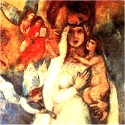
09.01.17 (Elul 10, 5777) The haftarah for parashat Ki Teitzei (i.e., Isa. 54:1-10) is the fifth of seven readings from the prophets that are consecutively read before Rosh Hashanah. These "haftarot of comfort" foretell of the restoration of the Jewish people and of the coming of the Messianic Era. In this week's reading, the LORD compares the children of Israel to a wife who has long been barren. According to the sages, God tells the "Wife of His youth" to sing out with joy, for soon she will have a hard time keeping track of all her children! Many will return by means of a mighty wave of repentance that will sweep over the world when Jerusalem is finally redeemed and the Mashiach reigns in Israel.
Though the LORD hardened Israel for a season (Rom. 11:25-29), His love for her is sure, and all His promises will be established. In the End of Days all Israel will be saved, in times "like the days of Noah." But just I God swore that the waters of Noah should no more go over the earth, so He has sworn that Israel will be regathered and restored.
רָנִּי עֲקָרָה לא יָלָדָה פִּצְחִי רִנָּה וְצַהֲלִי לא־חָלָה
כִּי־רַבִּים בְּנֵי־שׁוֹמֵמָה מִבְּנֵי בְעוּלָה אָמַר יְהוָה
ran·ni · ak·a·rah · lo · ya·la·dah · pitz·chi · rin·nah · ve·tza·ha·li · lo · cha·lah
ki · rab·bim · be·nei · sho·me·mah · mi·be·nei · ve·o·lah · a·mar · Adonai

"Sing, O barren one, who did not bear; break forth into singing and cry aloud,
you who have not been in labor! For the children of the desolate one
will be more than the children of her who is married," says the LORD."
(Isa. 54:1)
Note: Rosh Hashanah will begin in about five weeks (i.e., Wed., September 20th at sundown). During the time leading up to the High Holidays, it is customary to engage in cheshbon ha-nefesh ("soul searching") and to derive comfort that God is forgiving and loving to those who sincerely turn to Him. The Jewish sages chose the seven "Haftarot of comfort" to encourage us to make our hearts ready for the upcoming High Holiday Season.
Shabbat Shalom and may the Lord bless you, keep, you, and shine upon you, chaverim...
Fighting Spiritual Blindness...
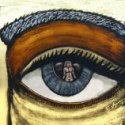
[ The following entry concerns this week's Torah reading, parashat Ki Teitzei.... ]
09.01.17 (Elul 10, 5777) Our Torah portion this week (Ki Teitzei) commands us to remember what the Amalekites did to the Jewish people just after they left Egypt during the time of the Exodus (Exod. 17:8-16; Deut. 25:17-19). Paradoxically God commanded the Israelites to "blot out the remembrance" of Amalek while swearing to fight Amalek "from generation to generation" (Deut. 17:16). In this connection note that the name "Amalek" (עֲמָלֵק) begins with the letter Ayin (symbolizing the eye) and equals 240 in gematria -- the same value for safek (סָפֵק), the Hebrew word for doubt. Amalek therefore symbolizes "the eye of doubt," or even "the severed eye" (the Hebrew verb מָלָק means "to chop" or "sever" in reference to the "eye" of Ayin). The power of Amalek therefore represents spiritual blindness as it acts in the world. We are never to forget that the light of God overcomes the darkness of this world, and that light is found in Yeshua our LORD....
Note: For more on this important topic, see "Warfare with Amalek."
Teshuvah of Concern...

[ The following is related to the month of Elul and the theme of teshuvah (repentance)... ]
09.01.17 (Elul 10, 5777) Blaise Pascal wrote that faith in Yeshua is essentially a confession of irreparable human infirmity, and therefore its message is always directly there - to the place of our pain and desperation. Consequently it has no voice or message to mere triflers - to those who might patronize it as philosophically interesting, morally edifying, poetically beautiful, politically useful, and so on. No, no, never: the Spirit speaks to the heart in its anguish, in its lament over the suffering and agony of life in this world, and there breathes out the haunting question, "Do you want to be healed?"
עָקב הַלֵּב מִכּל וְאָנֻשׁ הוּא
מִי יֵדָעֶנּוּ
a·kov · ha·lev · mik·kol · ve·a·nush · hu
mi · ye·da·en·nu

"The heart is deceitful above all things, and incurably sick;
who can understand it?"
(Jer. 17:9)

Though our faith can be expressed in "theological" terms, it remains first of all a message to the individual in existential distress, shouting the way of escape to those on the edge of the everlasting abyss... The language of genuine teshuvah is one of ultimate concern, a message that appeals to matters of life and death itself.
"A life of a human being begins with the illusion that a long, long time and a whole world lie before him in the distance, begins with the foolhardy delusion that he has such ample time for his many claims. The poet is the eloquent and enthusiastic confidant of this foolhardy but beautiful delusion. But when a person in the infinite transformation discovers the eternal itself so close to life that there is not the distance of one single claim, of one single evasion, of one single excuse, of one single moment of time from what he in this instant, in this second, in this holy moment shall do - then he is on the way..." (Kierkegaard: Works of Love)
Restoring what is Lost...

[ The following entry concerns this week's Torah reading, parashat Ki Teitzei.... ]
09.01.17 (Elul 10, 5777) "Do not ignore the loss of your brother... you shall restore it to him" (Deut. 22:1-3). The Torah states that it is a moral duty to return lost items to others, and on a spiritual level that includes restoring honor and dignity to those who have lost sight of their value in the eyes of God... For even greater reason we must make restitution to those whom we have harmed. Making amends is part of the teshuvah process. We hurt ourselves when we hurt others, and we hurt others when we hurt ourselves. The way out of that circle is through making amends. As Yeshua taught: "If you are offering your gift at the altar and there remember that your brother has something against you, leave your gift there before the altar and go. First be reconciled to your brother, and then come and offer your gift" (Matt. 5:22-23). "Therefore, confess your sins to one another and pray for one another, that you may be healed. The prayer of a righteous person has great power as it is working" (James 5:16). Ultimately, confession of the truth is not optional for anyone.
Indeed, regarding the duty to restore what is lost to our brother, the Torah adds, "and you are not to ignore it," which literally reads, "you are unable to hide it" (לא תוּכַל לְהִתְעַלֵּם). Rabbi Abraham Twerski notes that the Torah is not giving us a command as much as stating a fact: You are unable to hide from a wrongful act. In other words, the problem with "getting away with it" is that you get away with it, that is, you take it with you. Such self-deception sears your conscience, makes you numb inside, and deadens the heart. Making amends to others is life-giving, helping you let go of what you've done wrong to restore inner peace. We must be vigilant not to let our hearts die because of either shame or rationalization. May the LORD help us walk in the Spirit of Truth.
Come just as you are...
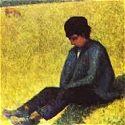
09.01.17 (Elul 10, 5777) Some people seem to think that we first must repent and then we will encounter the Lord, but it's actually the other way around: we first encounter the Savior and then we learn the true meaning of repentance. Thus Paul's eyes were opened after he was first blinded by the light (Acts 9:3-6). Likewise, it is only after we have met the Lord that we begin to understand our own blindness of heart, but as learn to see more clearly, we encounter more and more of his love (Rom. 5:20; James 4:6). As Yeshua said, "My yoke is pleasant (χρηστὸς) and my burden is light (Matt. 11:30). Teshuvah, then, is a progressive and ongoing process of awakening, as we learn to love God and to accept ourselves, despite our struggle with sin. As St. Anselm once prayed: "O Lord, grant us grace to desire thee with all our hearts, that so desiring, we may seek and find thee, and so finding thee, may love thee, and loving thee may hate those things from which you have redeemed us." Amen.
We encounter the Lord "just as we are," by means of his gracious intervention in our lives, and so we continue to live by faith in God's grace (indeed, what we call "sanctification" is often just "catching up" with the miracle of his revelation to us). And we always come to God "just as we are," since we are never more than what we are in the truth: "by the grace of God I am what I am," as Paul said. "For all things come from You, and from your hand we give back to you" (1 Chron. 29:14). Therefore the Spirit of God says, "Come just as you are, or you may never come at all...."
A prayer to the One calling you to come: "I come to you just as I am - needy, sick within, weary, and broken... I come seeking your love; I come because you invited me to come: I open my heart, such as it is, to you; please join me here, in this place of my need, in this place of pain, and wrap me your comfort. I can only love you as I know your love, Lord Yeshua, so please help me to know your love in the truth. Amen."
Turning to the Heart...

09.01.17 (Elul 10, 5777) From our Torah we read, "But you shall seek the place that the LORD your God will choose ... there you shall go" (Deut. 12:5). The sages note that the gematria for this verse (5150) is the same as "You shall therefore lay up these words of Mine in your heart and in your soul..." (Deut. 11:18), which therefore shows that the Divine Presence, Ha'makom (הַמָּקוֹם), the Holy Temple, was always meant to be manifested within your heart... As Yeshua said, "the kingdom of heaven is within you."
"Know therefore today, and lay it to your heart, that the LORD is God in heaven ... there is no other" (Deut. 4:39). Note that the phrase "lay it to your heart" is better translated as "return to your heart" (וַהֲשֵׁבתָ אֶל־לְבָבֶךָ), since again, the truth of the LORD is found there – within the heart that truly seeks him (Deut. 4:29). We encounter truth in the heart's seeking for the LORD and His love. May we all know this truth today...
|





























